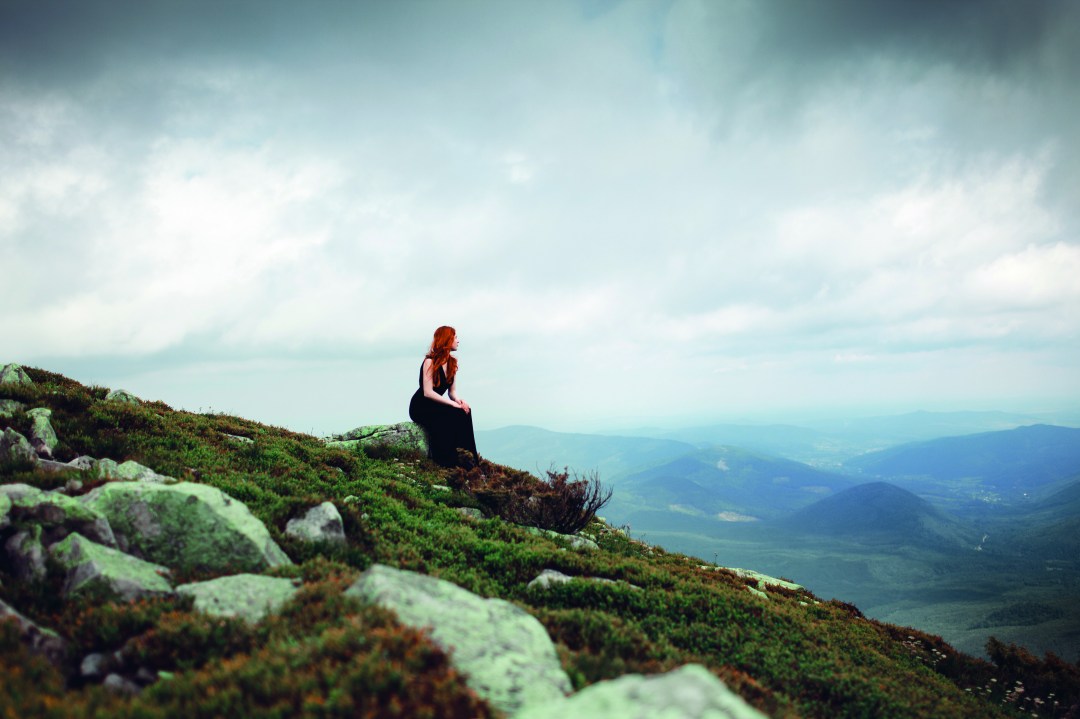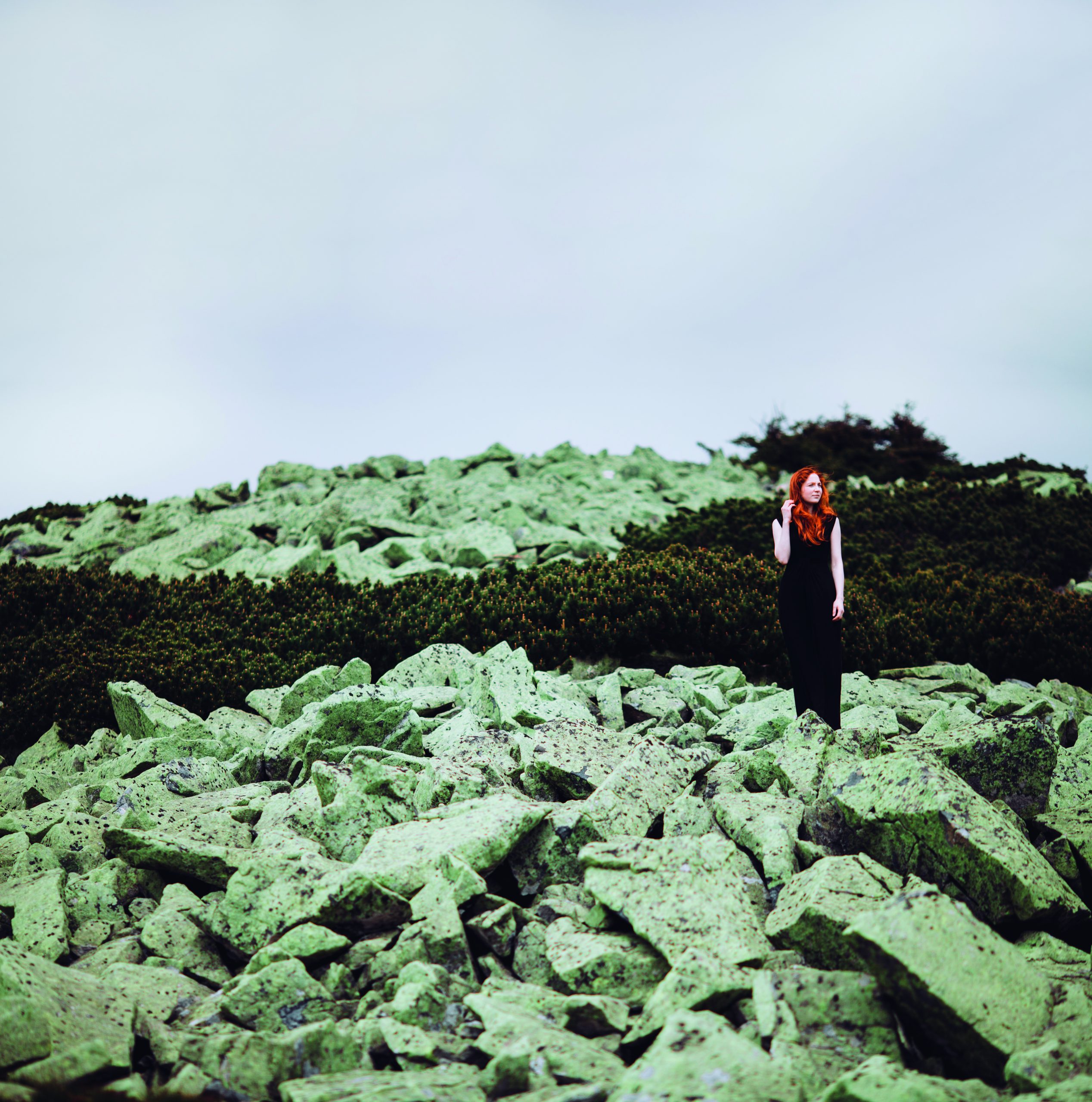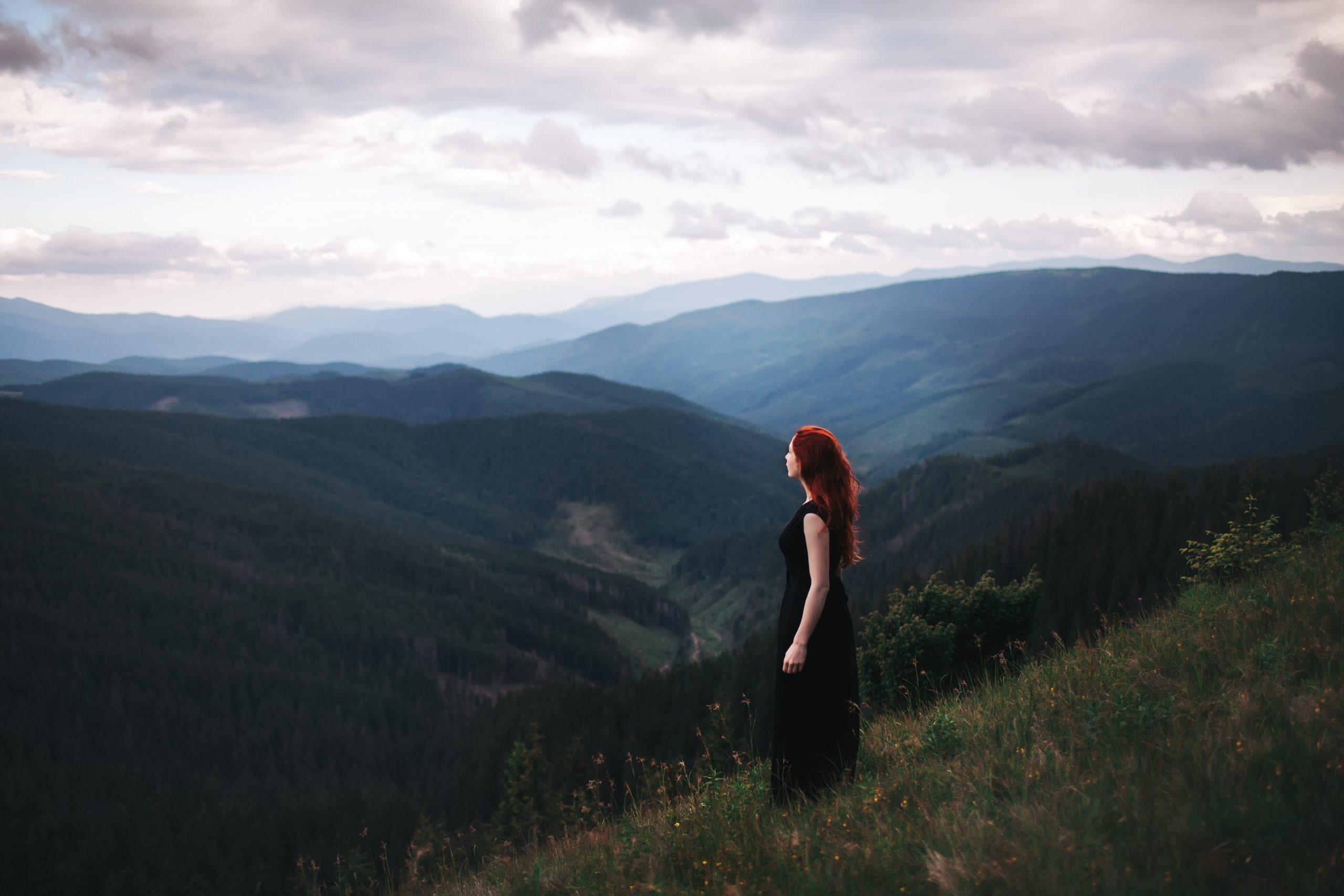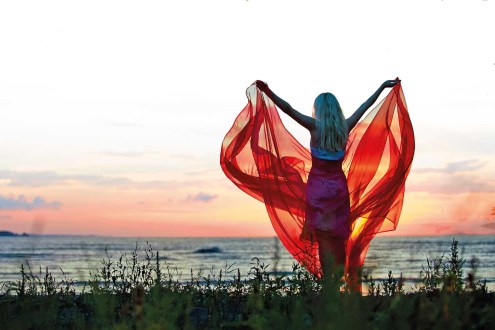Spring 2021: Nature cure: How going wild will make you feel well
In our safe, sanitised world, we explore why getting back in touch with nature will help heal you and why wilderness therapy can realign you and help improve your mental health.

Walk on the wild side
In our sterile, tech-dependent world, it’s easy to lose touch with one of our greatest resources – nature. In this guide we explore how communing with Mother Nature can help us heal, and reconnect with what matters most.
Anita Chaudhuri talks to experts about how wilderness therapy, green spaces, wildlife and birdsong can restore wellbeing and bring wonder to our lives. There are strategies to deepen our relationship with the earth, and tips to discover a feeling of wildness, even if you live in an urban environment. Plus, writer Anita Sethi reflects on the arrival of spring, with its message of hope and rebirth.
Nature heals – outdoor therapy
The evidence is compelling – regular time in nature is essential for the wellbeing of your body, mind and soul. Anita Chaudhuri explores accessible ways to connect more intimately with Mother Earth, even if you live in a city. Join her and rebuild yourself in the natural world.
Writing in her beautiful visual diary, The Wild Remedy: How Nature Mends Us, Emma Mitchell notes: ‘Taking a daily walk among plants and trees is as medicinal as any talking cure… even if it’s only for five or 10 minutes. Seeing the blackthorns and lime tree opposite our cottage induces a response in me that I can only describe as a neuronal sigh of relief.’
Who doesn’t need that right now? It’s an idea backed by science – a study reveals that just 10 minutes in nature helps you feel happier and reduces anxiety. But what if, like me, you’ve never considered yourself the outdoorsy type? I wouldn’t know a blackthorn if it jumped up and stabbed me. Or a lime tree, for that matter. When you grow up in a city, you don’t learn this stuff. How can you appreciate what you cannot identify?
Deepen the bond
‘You can go to any green space and maybe pick one or two leaves from a tree or plant that you’re drawn to, or photograph them,’ Mitchell tells me. ‘Afterwards, you can look them up in a book or share your images online. There are loads of people out there who will tell you what species it is. Then go back to the same place and observe how it’s flowering, or how the leaves are changing over the seasons.’
I go one better and download an app that claims to identify botanical specimens. Spying a beautiful flowering tree in my local park, I test my app, which informs me that it’s crataegus monogyna, or hawthorn. Thrilled with my knowledge, I post it on Instagram, proudly using the hashtags #naturegirl and #treehugger. Sadly, my green halo slips when a howl of protest goes up below my post. ‘For goodness sake, how can you not know that’s a horse chestnut?’ they scoff. ‘You don’t need to share your photographs in posts if you don’t want to, you can use them to make sketches when you get home,’ says Mitchell.
Her book is part memoir, part illustrated diary featuring her artwork. ‘If I see a robin, I am exhilarated; that sighting can help alleviate melancholy, and I am keen to paint it, perhaps, in order to hold on to that effect for a little longer.
Inspired, I begin to doodle leaves and slowly start to identify common flora and fauna. Eventually, I download a birdsong app too. ‘It’s like Shazam for feathered friends,’ I boast to a friend. She politely asks if I am having some kind of crisis, but I don’t mind, the truth is that I’ve never felt happier. It’s as if I’m turning into a different person. ‘The brain responds positively to being among trees and plants. Human beings are farmers, going back thousands of years,’ Mitchell says. ‘We may not need to grow carrots to survive, but what we do need to do is try and alleviate the effects of upsetting world events right now.
Even doing something as simple as repotting a plant is giving your brain a mental reward because, for our ancestors, that practice was linked to getting food.
Subscribe to Emma’s blog and more at silverpebble.net
Eco psychotherapist Alix Hearn believes that the benefits of spending time in the wild is about shifting perspective and being present with our bodies. ‘Being outdoors in nature is grounding. You can’t be too deep in your head because you might be navigating your route, negotiating dogs, people, fences or rain. In nature, you’re immediately exposed to things that are unpredictable, making micro decisions about boundaries, what is safe and in which direction you should go.

Access the ancient magic
Hearn believes there’s a metaphorical power that comes into play from being outside. ‘People can unconsciously link the physically embodied experience of being in nature with those parts of their lives with which they might be struggling.’ For example, she says, perhaps you need to make a decision or feel stuck in some way, then you go for a walk… You probably won’t make the connection at the time, but making decisions about which route to take could give you more confidence when working through that situation.
One way to help you make personal connections with the rich imagery and symbolism that nature feeds us is to keep a journal, especially a ‘pillow book’ to record your dreams as soon as you wake up.
‘I think being outdoors gives us the chance to feel part of something greater than ourselves, and a connection with others,’ says Hearn. ‘If we feel alone or isolated, we only need step outside. On our excursions, we meet other people. It’s easy to forget that, actually, we are all connected with each other.
Your birthright
Part of that is down to the timeless quality of landscape. ‘It connects us to our histories – the people we used to be, as well as our ancestry,’ explains Hearn. Sitting under an old tree can be tremendously powerful. It evokes memories of climbing trees as a child, a sense of long-lost freedom and a feeling of continuity with the past. If you live in the same region as your family of origin, might your great-grandmother have sat under the same tree? The reference to our ancestors is one that resonates for me in other ways too. I may have lived most of my life in the city, but people are always surprised by my ability to predict the weather. That comes directly from growing up with a mother whose roots were in rural Scotland. Every day, I would hear her observations about the patterns of clouds and birds, and what they signified. ‘Boring, snoring,’ I would think. But, by some miracle, it’s buried within, and now I’m harvesting that wisdom for myself. Although it’s possible to receive the benefits of nature even in urban spaces or the occasional woodland ramble, some people feel driven to experience the true call of the wild.
Tamsin Calidas, photographer and author of the bestselling memoir I Am An Island (Transworld, £16.99) took a romantic leap of faith and bought a derelict croft in the Hebrides with her husband. Their city life had been fraught with disaster, including a terrifying car crash. In the Hebrides, however, she had to adjust to the harsh weather, wild seas and unfriendly neighbours, then the pain of infertility, the end of her marriage and bereavement. ‘Although I have gone through many hard years, I love living here and it has been liberating for me in many respects,’ says Calidas, who now inhabits her croft alone. ‘There is less noise, less turbulence, less distraction. I haven’t had a TV for more than 10 years, but I sometimes listen to the radio. I live very simply.
Wild at home
Calidas made such a dramatic life change because she wanted a fresh start and to live a more sustainable existence. However, her advice for anyone thinking about following a similar path is to think very carefully about whether it’s the best choice for them. ‘We arrived full of the optimism and naivete of youth, plus we thought we had some skills – although no direct experience of running a smallholding. I had travelled extensively and worked in some remote and difficult landscapes in Asia and beyond, and nature had always been an important part of my life.
For those of us who can’t move to an island, she explains how you can you add wild magic to your daily life. ‘Wherever you live, you can find either a big field or a patch of sky or both. Go there every day and notice how it makes you feel, how it relaxes your mind and body to be connected with it.’
Your earthly essence
Nature helped her heal from grief and the losses in her life, including her marriage. ‘Every day, I would bring flowers and stones from the beach. That kinaesthetic touch and retrieval of objects really helps with processing loss. It takes you way beyond your cognitive mind into a deeper place.’ Now, instead of Netflix, Calidas watches the landscape intently and says it has had a transformative effect.
‘It’s been a beautiful journey of reading the wildlife differently, which makes you observe habitat more closely. You ask yourself what the sky is doing and how that will affect the weather? I notice the colour patterns of the mountains and the phases of the moon.’ The process inevitably creates a different relationship with time and the seasons. ‘It has taught me a deeper process of biodynamic living – simply put, that there is a right time for everything we want to tackle, dream up or implement in our lives. Ultimately, the benefit of living wild is that it helps us tune into our true nature, the innate nature within us all.’

A nature therapy Exercise
Wilderness therapist Alix Hearn shares a taste of wilderness therapy, a term that includes walking-and-talking sessions with a therapist, remote retreats and horticultural therapy – gardening or caring for plants.
Set an intention:
Before leaving home for a nature walk or immersion, decide on your focus – an issue with which you are preoccupied, a question that needs answering or a worry that is dogging you.
Look for clues:
As you walk or once you arrive at your destination, notice what you are drawn to outside. The world can act as a mirror reflecting patterns in your life. For example, you may notice a fork in the road that feels like a sign because you are wrestling with a decision. Or perhaps you come across a thicket of brambles and you realise that you’re often drawn to situations that are difficult to navigate. Or you might realise that you chose the muddy path when there was an easier way. On the way home, reflect on your question again or, to go deeper, journal about your experience.
Schedule time in nature:
We need routines and rituals in nature and our lives, otherwise we can live in chaos, moving from one thing to the next. At the moment, everyone is living in a heightened state of anxiety. The other day, I went for a walk and it was only when I was outside and calm that I realised how stressed I have been.
Alix Hearn is an associate therapist with the Wilderness Foundation , which offers nature-based outreach programmes.
‘Birdwatching brought me comfort’
During a low point in her life, author Emma Mitchell found peace while feeding and keeping company with the birds that visited her home
“Watching the birds in my garden helped me after a breakdown. Observing the blackbirds and blue tits was profoundly healing, which only came from looking at creatures that I found beautiful. Birdwatching is a wonderful way to connect with nature if you live in an urban environment. If you have a garden, put up bird feeders and see what comes along. Even if you live in a flat with a small balcony, you can feed and watch the birds. And, if you don’t have a balcony, you can stick feeders to the outside of your windows – there is usually a way! Fill the feeders with seeds and you’ll soon have tits, robins and even uncommon birds paying you a visit. Make a cup of tea and sit by the window to watch while relaxing. You’re helping the birds by providing food and they’re helping you by boosting your mental health. For anyone who is unable to set up feeders, or lives in a country where it’s getting cold, a lovely alternative is the RSPB’s birdsong radio. You can listen to singing birds in different locations, or download the app for a soothing alternative to talk radio”.

Five ways to cultivate a sense of wonder
Psychotherapist Alix Hearn helps you immerse yourself in nature as if for the first time, overturn a negative mindset and benefit from the wisdom and power at your fingertips
1 Try to rekindle the amazement that you had as a young child encountering the joys of nature. As adults, we can become jaded and take magnificent places and creatures for granted.
2 Go out when it’s windy or raining. Wild forces can remove you from one state and connect you with a new one. Nature is unpredictable – you can’t set an agenda or make a spreadsheet.
3 Come up with a way to describe how the wind feels in your hair, or the raindrops on your face. Journal or make a voice recording on your phone to note your observations. Watch tiny insects and busy birds as if you’ve never seen them before – engaging with details brings you into the moment.
4 Put your hands in the earth. Connecting your body with the soil is a powerful act. Lie on the ground, alone or with others. Feel Mother Earth support you. Look up at the clouds and sky and allow yourself to feel a sense of awe. Remove your shoes and walk barefoot on the grounding earth.
5 Befriend a tree. Visit it every time you go out. Notice how it changes – a new bloom, colour or growth spurt. Bonus points for photographing it regularly and giving it an Instagram account!
Alix Hearn is an associate therapist with the Wilderness Foundation , which offers nature-based outreach programmes.
Wild restoration for urban dwellers
You can get a medicinal dose of nature in the city, say the eco wellbeing experts
Start a nature collection
‘Every time I go for a walk, I fill my pockets with tiny finds, such as an acorn, an empty snail shell or a pretty stone,’ says author Emma Mitchell. Pick a theme – you could choose a colour or collect different types of leaves. Not only will this create something uplifting to look at on days when you can’t get outside, but collecting also activates the brain’s reward centre, a phenomenon known as ‘harvest high’ by scientists.
Turn your home into an oasis
‘If you don’t – yet – have green fingers, begin with kitchen herbs,’ suggests Mitchell, ‘which have immediate culinary benefits. ‘Or try succulents, a particularly popular starter plant because they’re easy to care for and hardy. Plus, they need repotting quite often, which gives you an excuse to get your hands into the soil, which is therapeutic.’
Go foraging
There are many books on the subject if you don’t know where to start. ‘Nettles are a great plant for beginners and make delicious tea,’ says psychotherapist Alix Hearn.
Try wild swimming
As the popularity of this pursuit rises, more waterways are opening up to swimmers, alongside lidos. Memoirist Tamsin Calidas, who swims in the sea daily, says: ‘The water wraps around you, lifts you and brings you into your body – it’s like rewinding yourself.’
‘WHAT WORKED FOR ME’
‘The chance to begin again helps me endure’
Nature writer Anita Sethi refelcts on the hope that comes with spring every year
I was born in March and have always felt hope blossom in my heart at the promise of springtime. ‘When the flowers bloomed, so did I’, I would joke about my birthday.
There is something impossibly exciting about the glimpse of the first golden daffodil after months of bleak wintertime; it is the knowledge of the bulbs themselves, all that incipient life growing beneath the earth, the possibility of beginning again, that has helped me endure.
I grew up in inner-city Manchester where there was not much in the way of rolling meadows, woodlands or rivers in walking distance, although the city is surrounded by the beautiful natural landscapes of the Peak and Lake Districts. For nearby nature, I had to learn to train my eye and heart to see urban nature – the dandelion in a gap on the pavement, the ladybird on grey concrete, the sun rising over rooftops.
One day, just before a bitter northern winter made being outside unbearable, I helped my mother plant bulbs at a busy crossroads and marvelled at how those bulbs would one day flourish as a glory of colour and life. Seeing them flower a few months later, I felt the formidable and regenerative power of nature. Training myself to seek nature in this way has been healing.
‘Those who contemplate the beauty of the earth find reserves of strength that will endure as long as life lasts’, said author and conservationist Rachel Carson. ‘There is something infinitely healing in the repeated refrains of nature – the assurance that dawn comes after night, and spring after winter.’ Focusing on nature in the outer landscape calms the inner landscape, soothes the anxious churn of thoughts and gives us the strength to keep going through the toughest of times.
Anita Sethi is the author of ‘I Belong Here: A Journey Along The Backbone Of Britain’ (Bloomsbury, £14.99), the first in her trilogy on nature.
HEAL IN NATURE COACHING COURSE
After a long, tough winter, it’s time to feel good outside again. In our four-week coaching programme, ‘Heal in nature’, Lara Khalaf helps us explore how connecting with the earth on a more meaningful level can act as a balm to boost our emotional health. With tips to rewild ourselves, no matter where we live, we look at four key wellbeing areas and how to implement practical strategies using nature to help us feel grounded, cultivate inspiration, overcome challenges and nurture ourselves.
Psychologies magazine isn’t just a normal subscription service – not only do you get our fabulous magazine delivered to your door in eco-friendly plastic free packaging for less than newsstand prices, but you also get access to a whole new level of support going forward to an exclusive life changing online coaching members club, including 24 life changing online coaching programmes (with a new one added every month), a supportive and inspiring online facebook group where you can interact with the Psychologies team, top coaches and other psychologies subscribers and join local face to face meet ups. Find out more here: preprod.psychologies.co.uk/Life-Leap-Club-Subscribers
At Psychologies we believe with a little help, support and inspiration, it’s far easier to make the changes we’ve always wanted to make. So, if you need a little inspiration, motivation, support or guidance to make your life an extraordinary one, subscribe today– you’ll get the magazine and all the life changing benefits of the membership club.
Subscribe here:
Images Getty images








